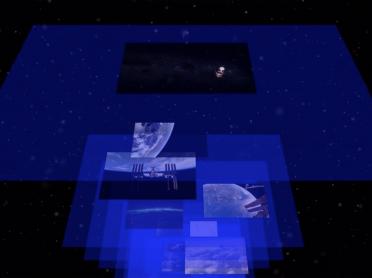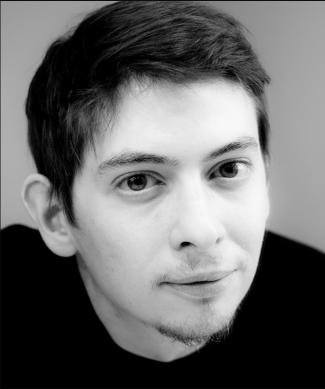What is Deep Sea Mining ?
Thursday 27 Jun 2019 from 2pm to 5pm
Free
Free admission

"What is Deep Sea Mining?", épisode 1, 2018
© Inhabitants
"What is Deep Sea Mining?" is a series dedicated to the topic of deep sea mining, a new frontier of resource extraction at the bottom of the ocean that is at the heart of current ecological thoughts
"What is Deep Sea Mining?" is the latest series of Inhabitants, an online channel for exploratory video and documentary reporting, dealing with environmental issues.
Discover the words of this series which will be projected on Thursday, June 27 from 4pm to 7pm in the Agora of the Foundation.
The screening will be followed by a conversation between Mariana Silva and Pedro Neves Marques, founders of Inhabitants, and philosopher Alexandre Monnin. Together, they will broach subjects inherent to "What is Deep Sea Mining?".
Discover the words of this series which will be projected on Thursday, June 27 from 4pm to 7pm in the Agora of the Foundation.
The screening will be followed by a conversation between Mariana Silva and Pedro Neves Marques, founders of Inhabitants, and philosopher Alexandre Monnin. Together, they will broach subjects inherent to "What is Deep Sea Mining?".
Inhabitants is an online channel for exploratory video and documentary reporting.
Founded in New York in late 2015 by visual artists Mariana Silva and Pedro Neves Marques, inhabitants produces and streams short-form videos intended for free online distribution. All episodes are available at www.inhabitants-tv.org, as well as on Youtube, Vimeo, and Facebook. Follow inhabitants on Instagram on inhabitants_tv. Inhabitants was shortlisted for the 2017 Visible Award and have worked with or shown at institutions such as the New Museum (within the 2018 New Museum Triennial), Haus der Kulturen der Welt, Museu Coleção Berardo, Contour8, and DocLisboa International Film Festival. It is currently collaborating with TBA21-Academy and art curator Margarida Mendes on a web series about deep sea mining, and is DAAD artists-in-residency at the Potsdamer Institut für Klimawandel.
Alexandre Monnin est Directeur Scientifique d’Origens Media Lab, Enseignant-Chercheur en école de management (ESC Clermont) et Président de l'association Adrastia.
Docteur en philosophie de l’Université Paris 1 Panthéon-Sorbonne, sa thèse a porté sur la philosophie du Web, un courant dont il a été le pionnier avec Harry Halpin et Yuk Hui (cf. H. Halpin & A. Monnin (éd.), Philosophical Engineering. Towards a Philosophy of the Web, Wiley Blackwell, 2013). Ses travaux empruntent aux sciences sociales les enjeux du terrain et il se réclame de ce fait d’une philosophie empirique. Sa recherche porte sur les enjeux ontologiques du Web et du Web sémantique, l’histoire de l’IA mais aussi l’art contemporain et ses liens avec la recherche actuelle, l’Anthropocène et la fin du numérique ou encore la question de la coopération et des communs. En 2016, il a fondé le Community Group "Web We Can Afford" au sein du W3C et en 2010 le CG "PhiloWeb". Auparavant, il a notamment été l’architecte de la plateforme numérique (ReSource) de la Fondation des Galeries Lafayette pour l’art contemporain, Lafayette Anticipations (2014-2016), Chercheur chez Inria Sophia Antipolis (2014-2017), consultant pour l'UNESCO (IIEP, 2013-2014), Fellow à l'IKKM (Bauhaus Universität, 2013), Responsable Recherche Web à l’Institut de Recherche et d’Innovation du Centre Pompidou (IRI, 2010-2013) et l’initiateur du DBpedia francophone (2011). Il est également membre du réseau d’experts de la mission Etalab sous la responsabilité du premier ministre (depuis 2013), du GDS Eco-info et du GDR "Internet & Société" du CNRS (depuis 2018). Il a enfin contribué à la rédaction du rapport intitulé "Pour une sobriété numérique" publié par le Shift Projet dans le cadre du groupe de travail "Lean ICT" (2017-2018).
